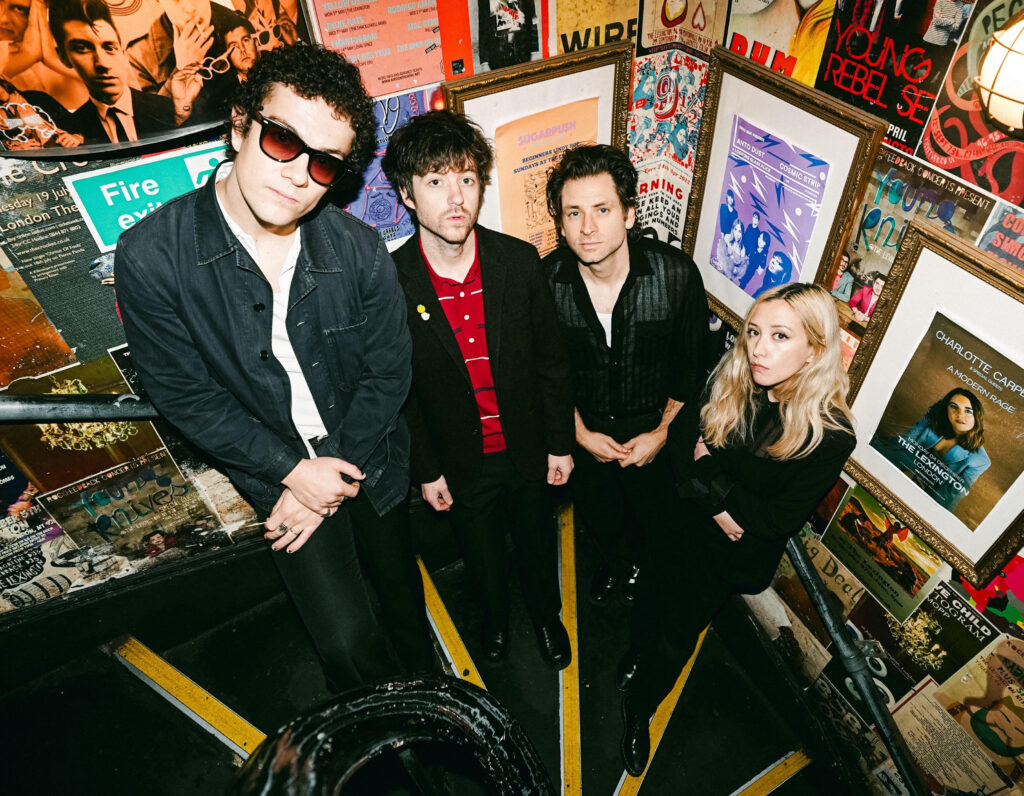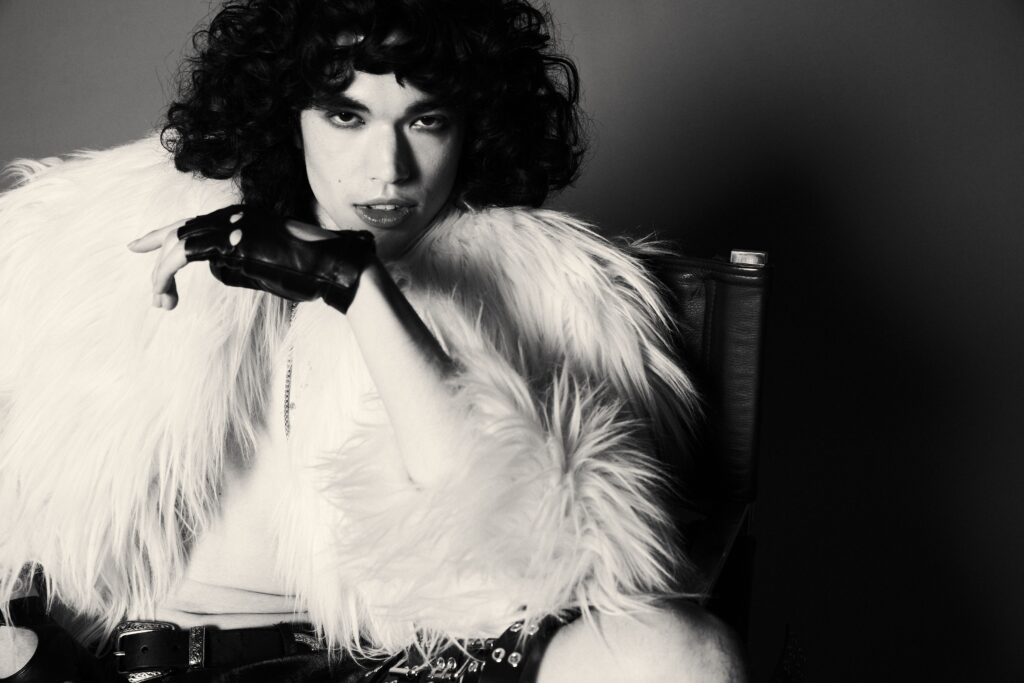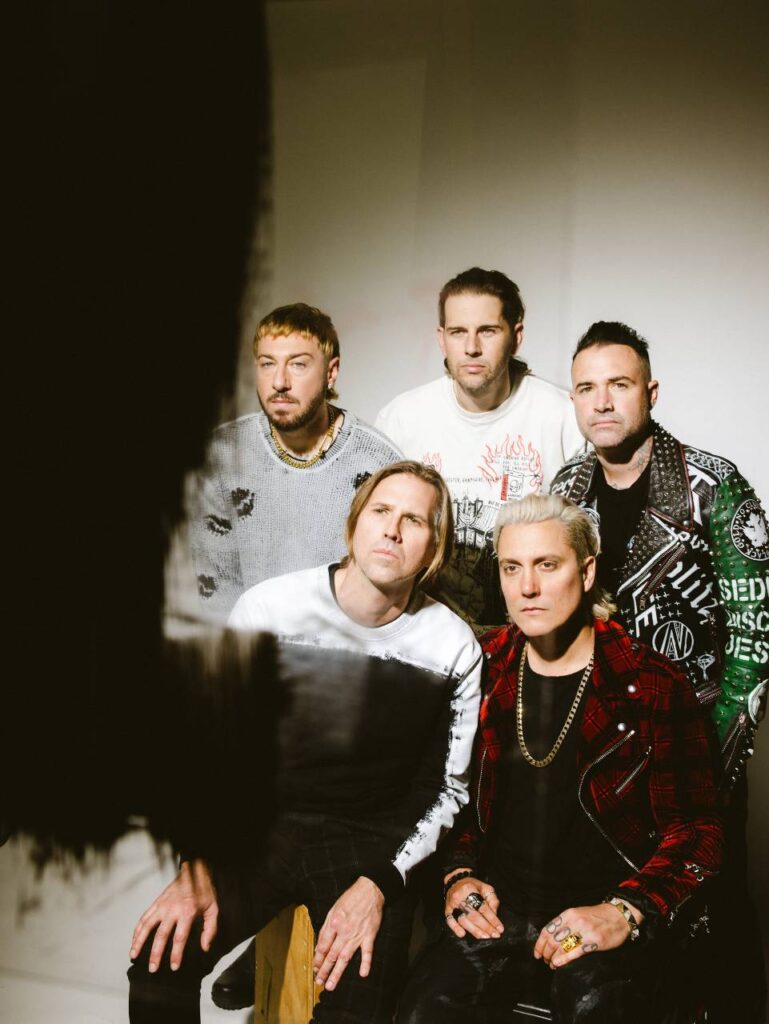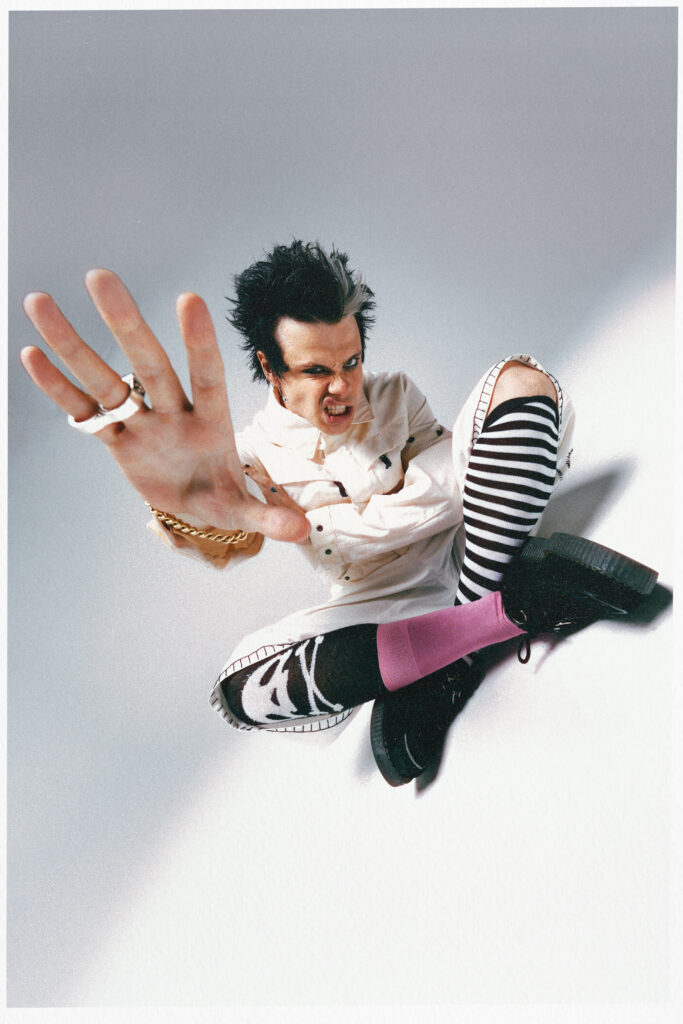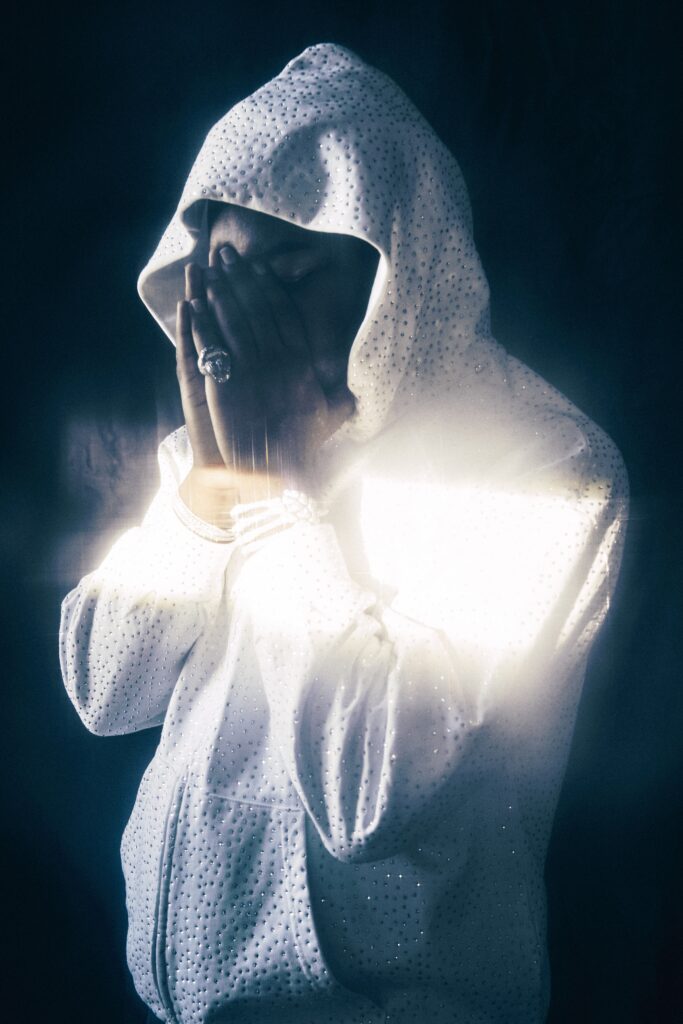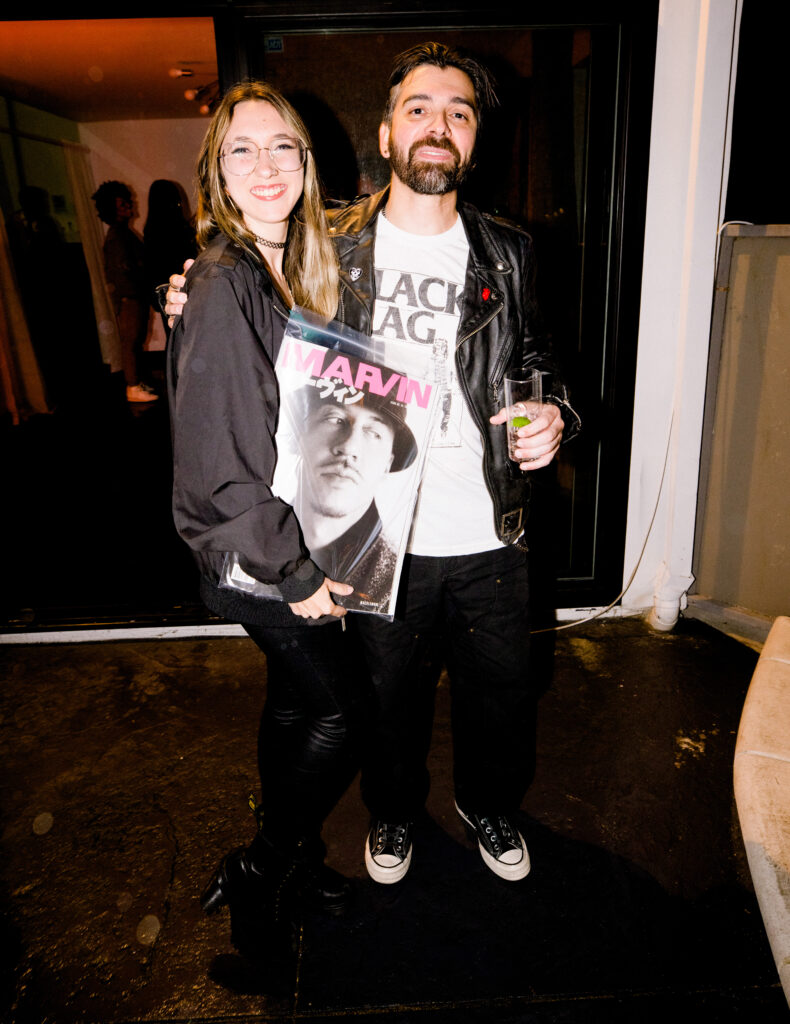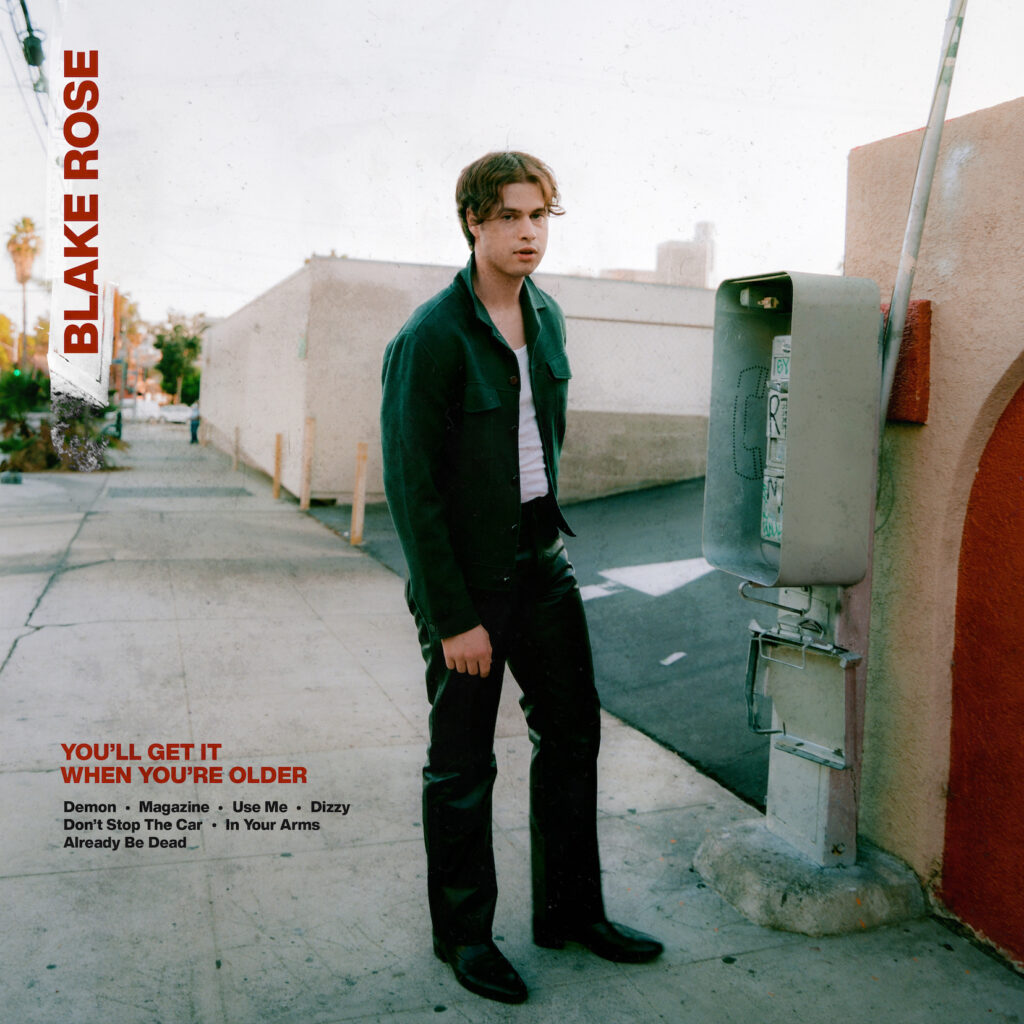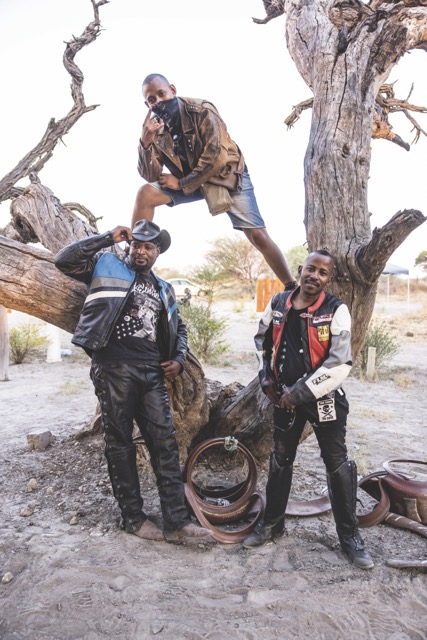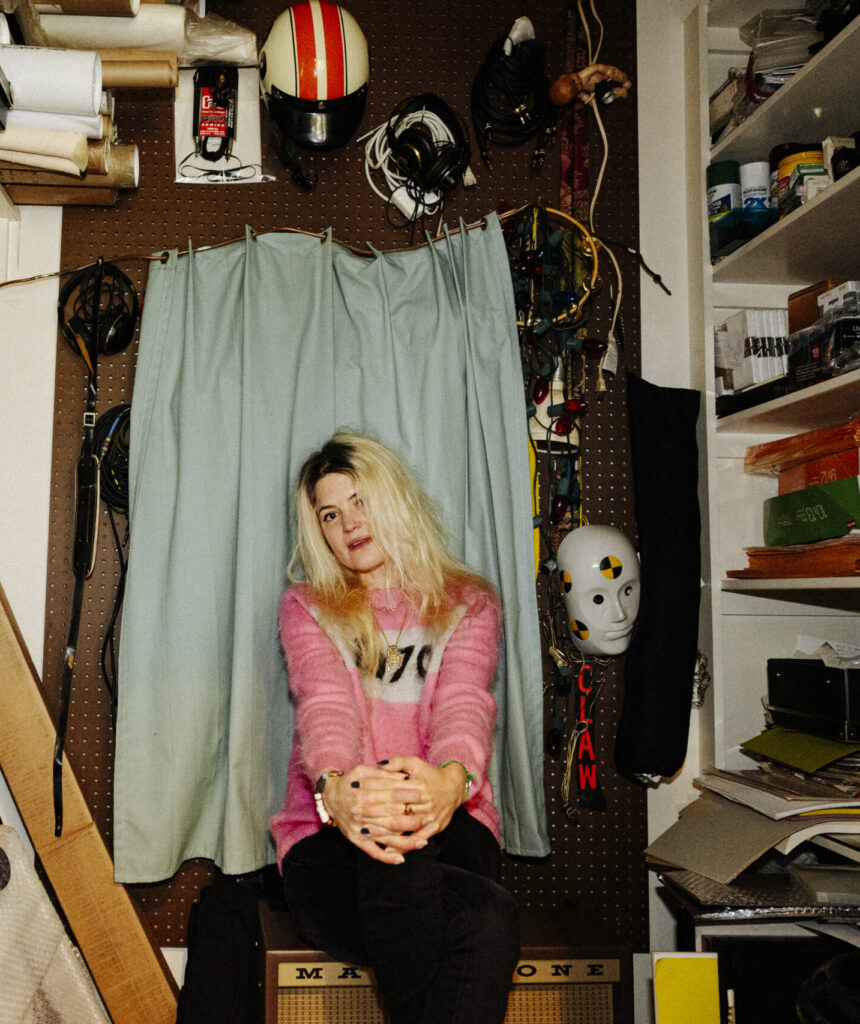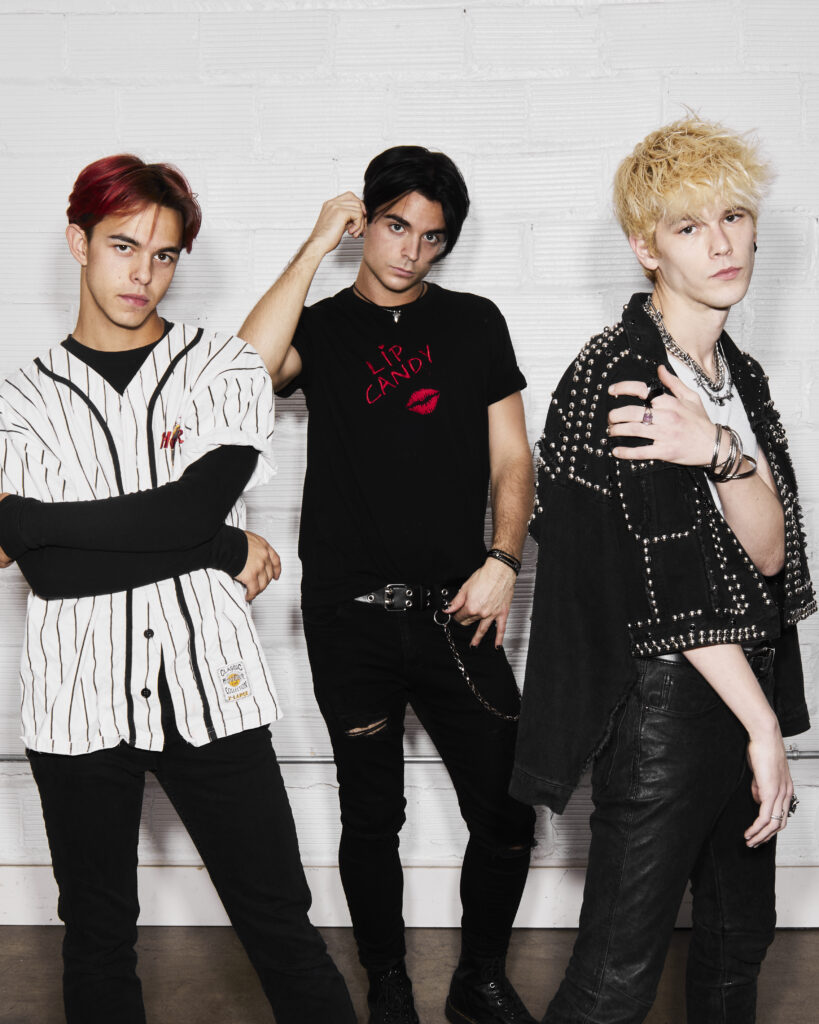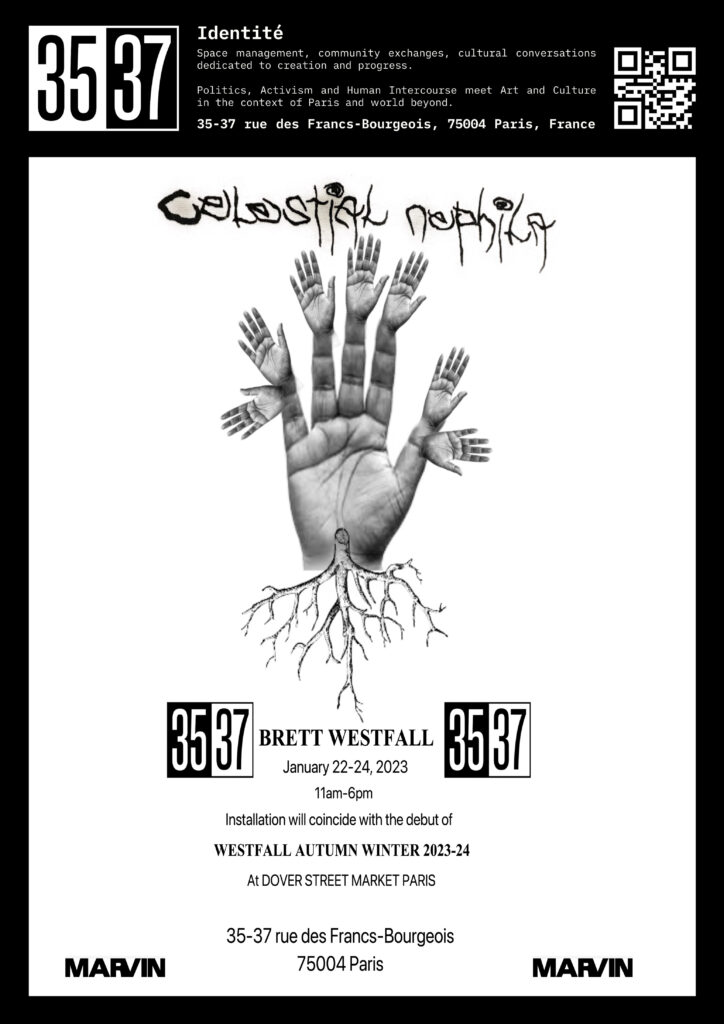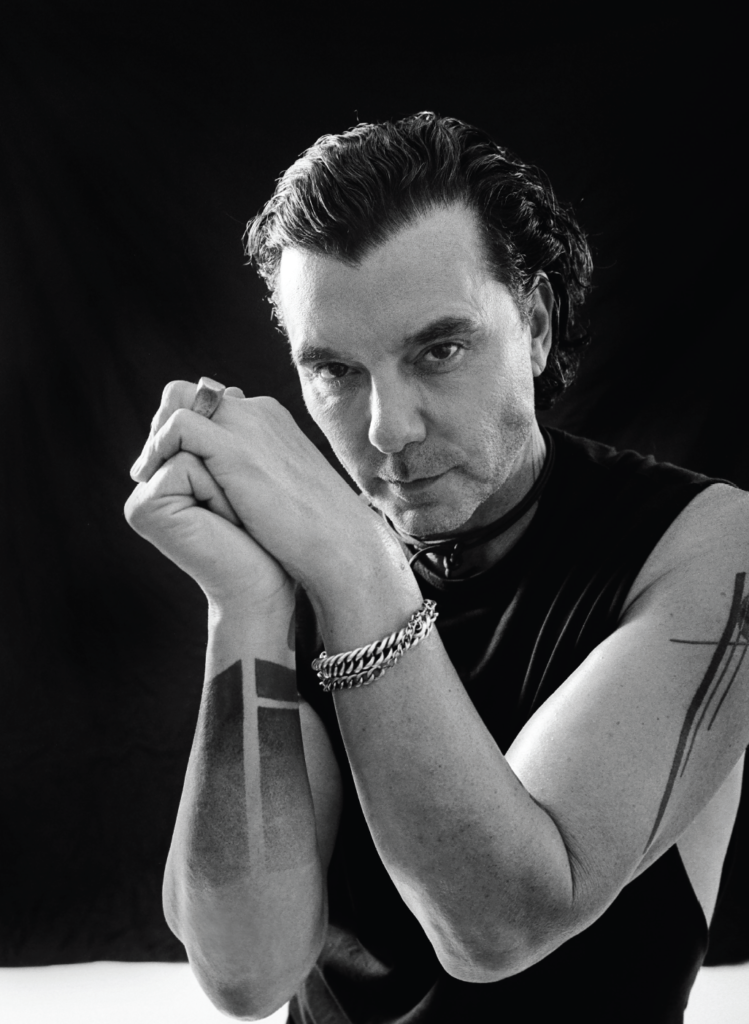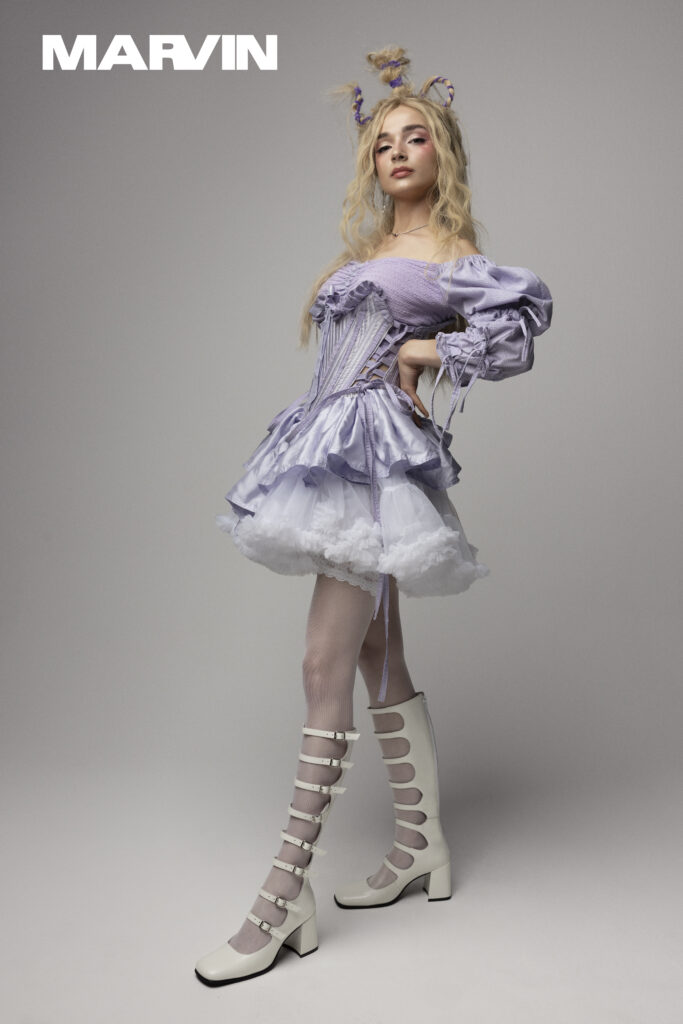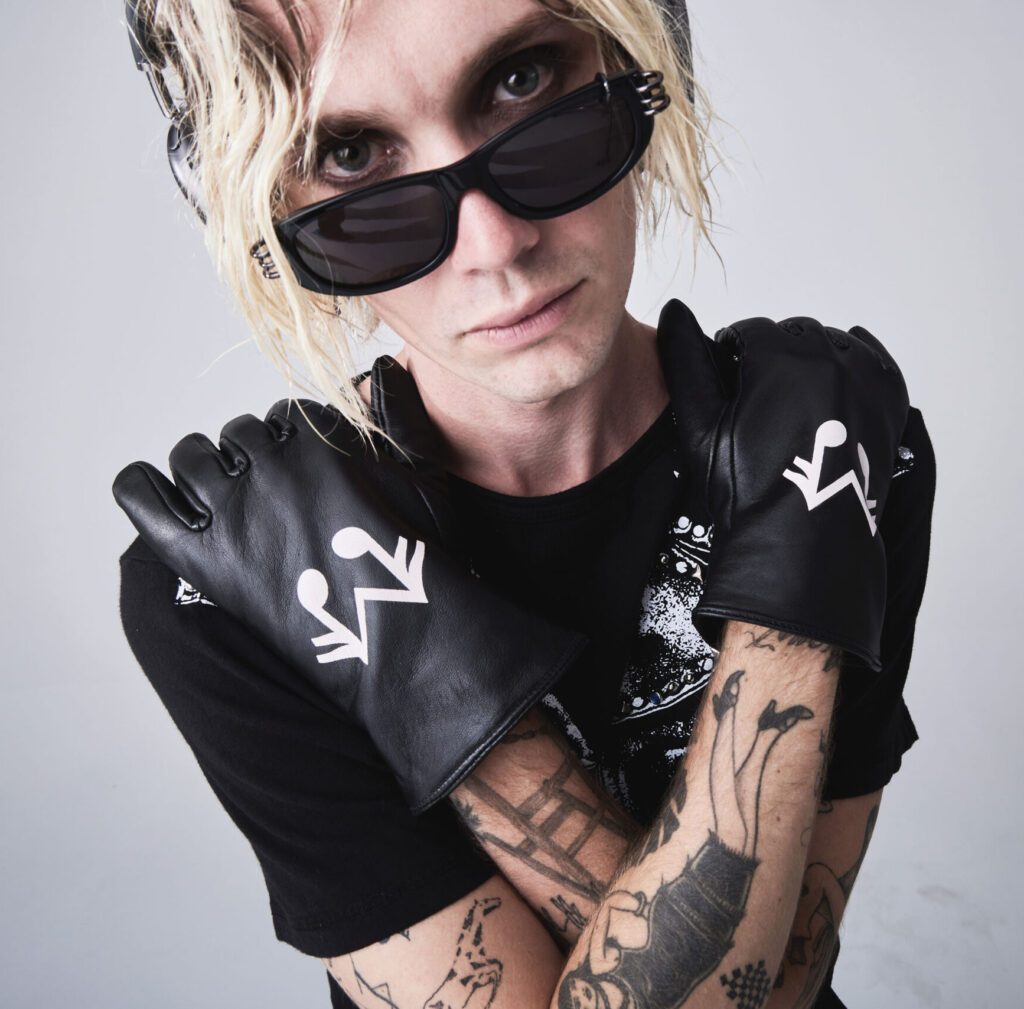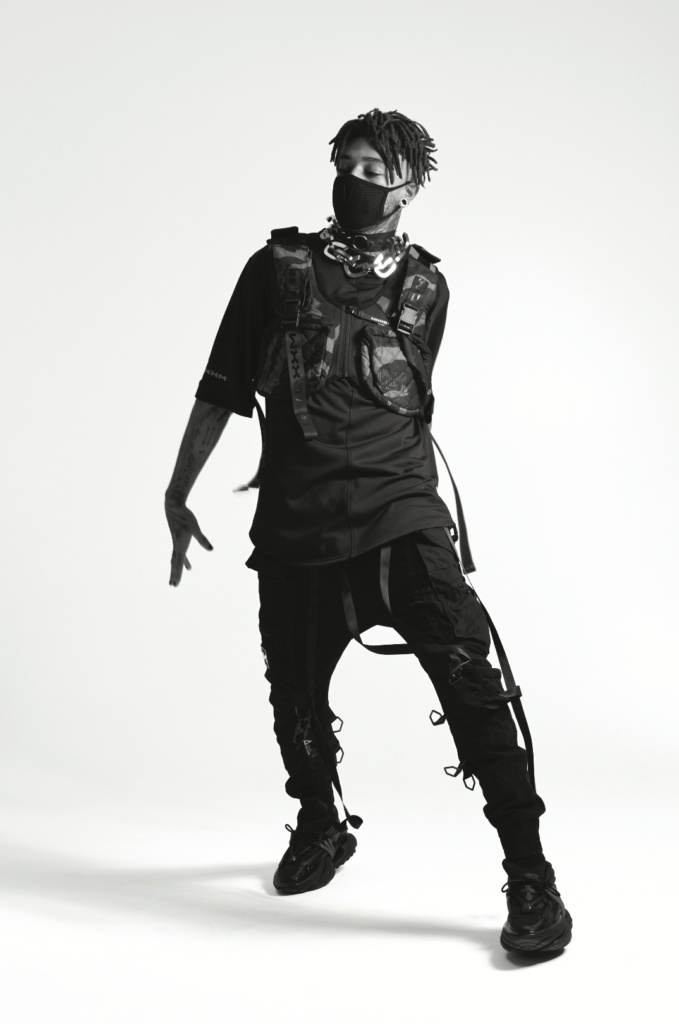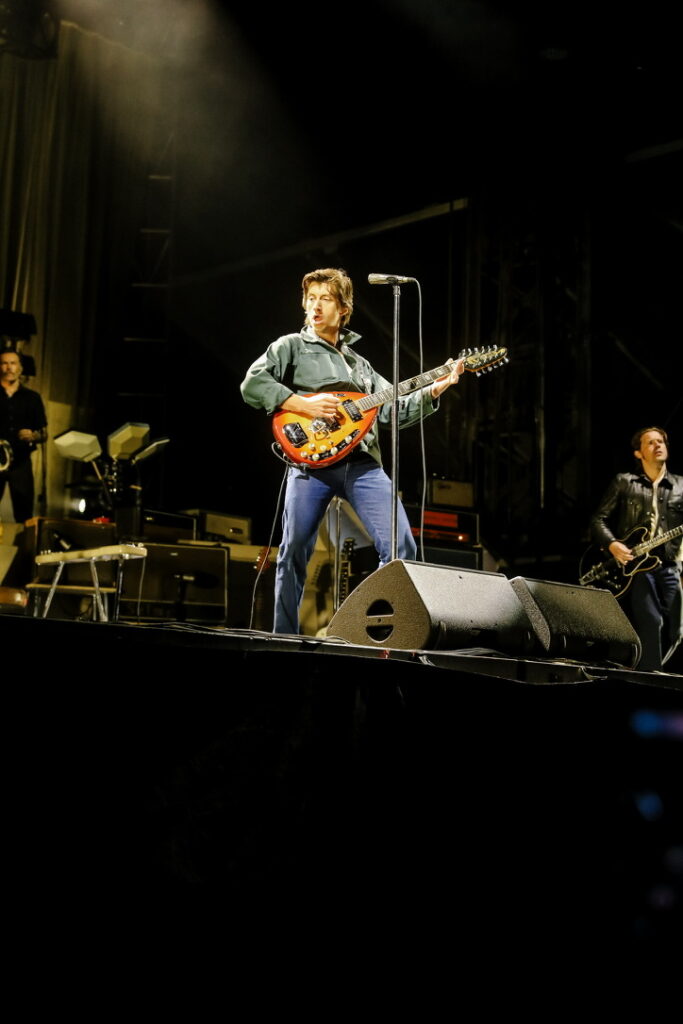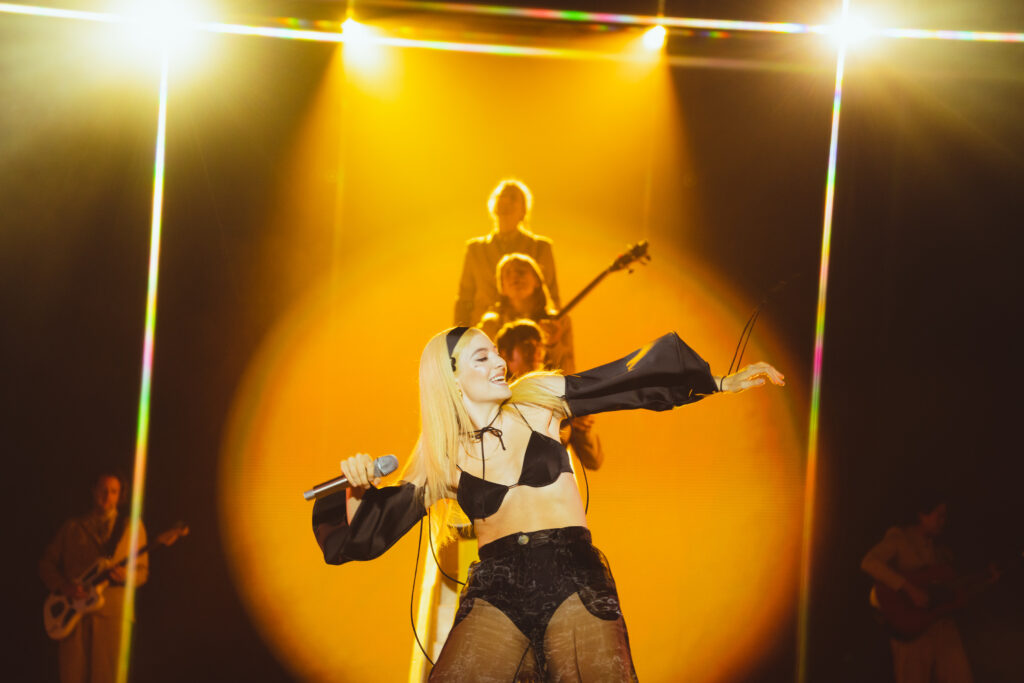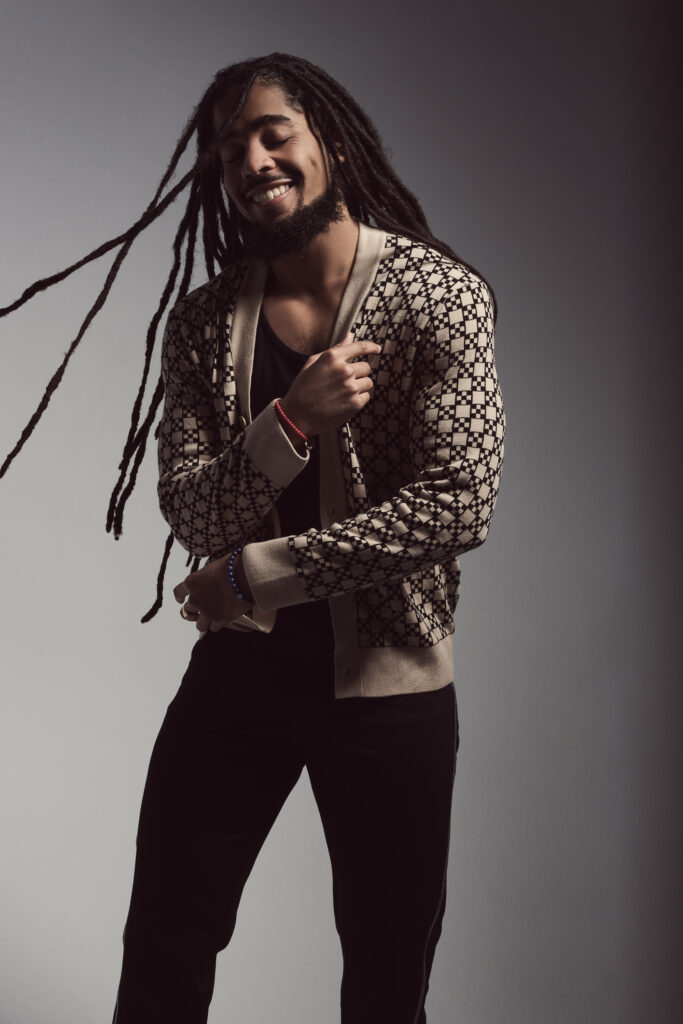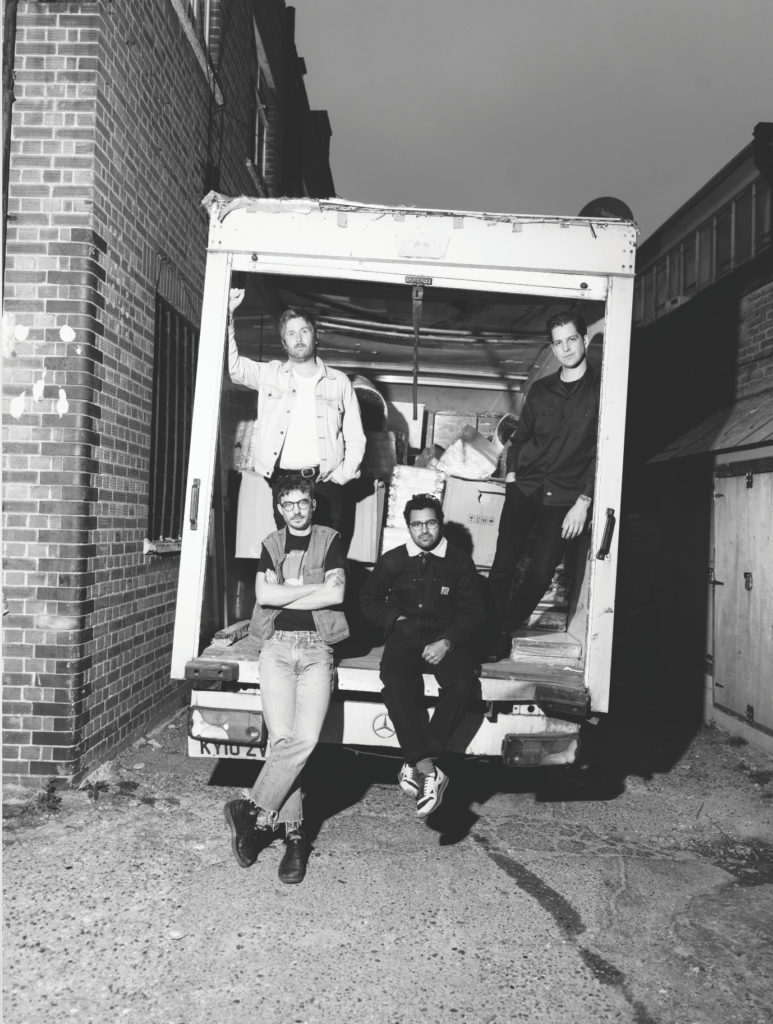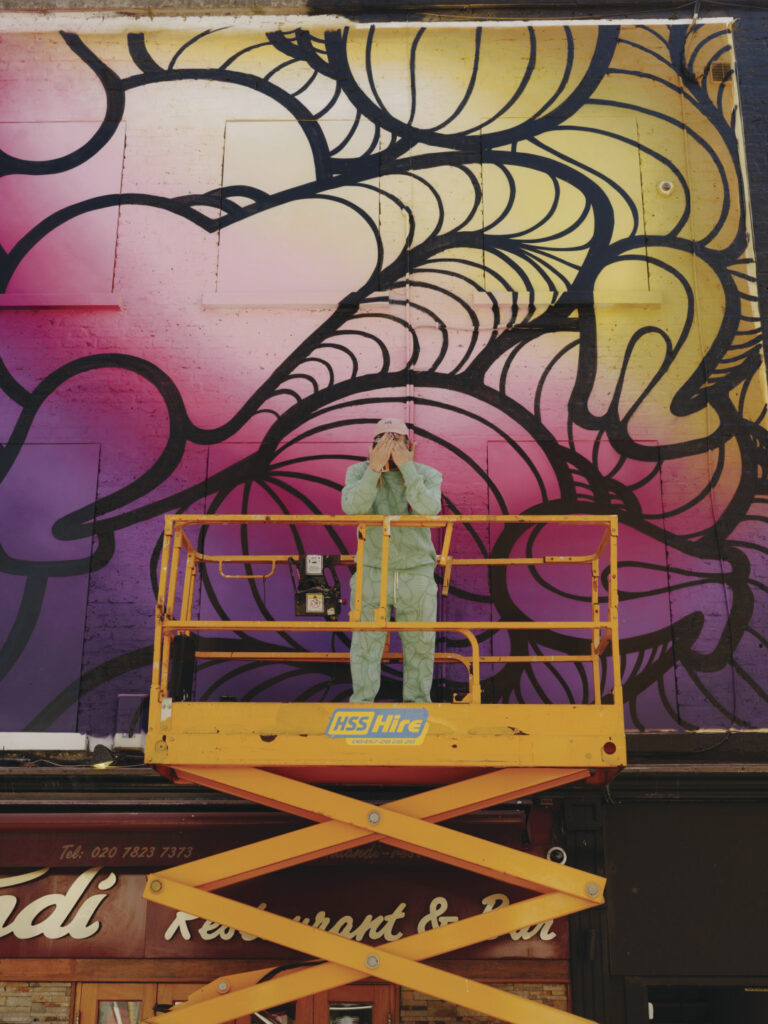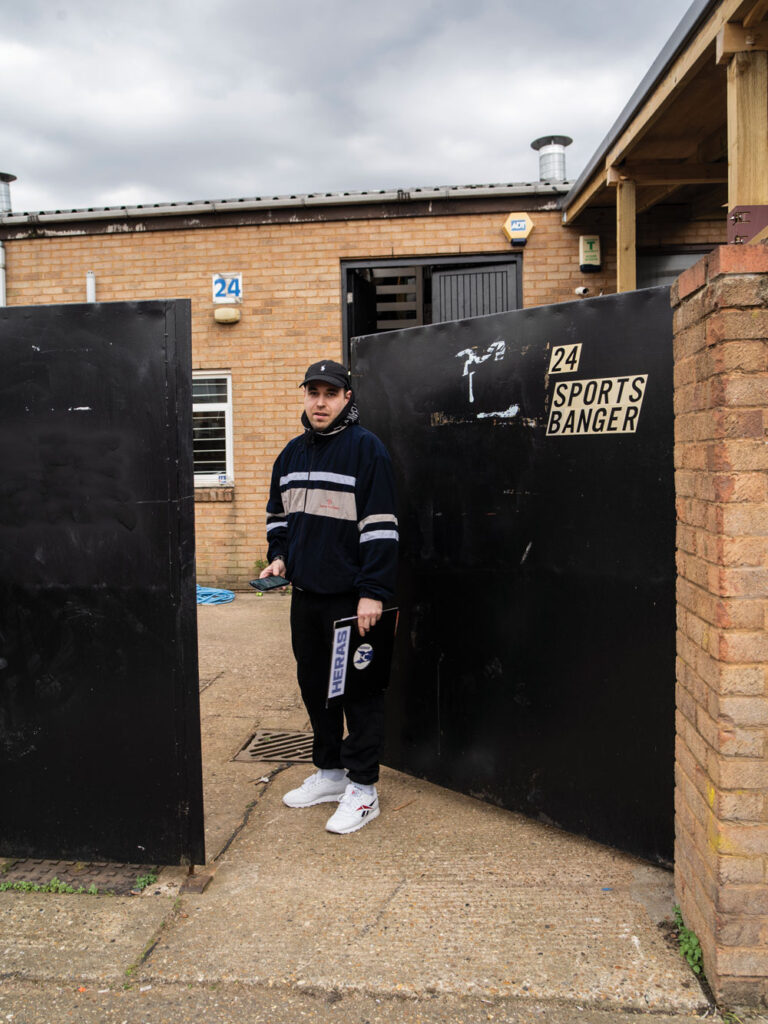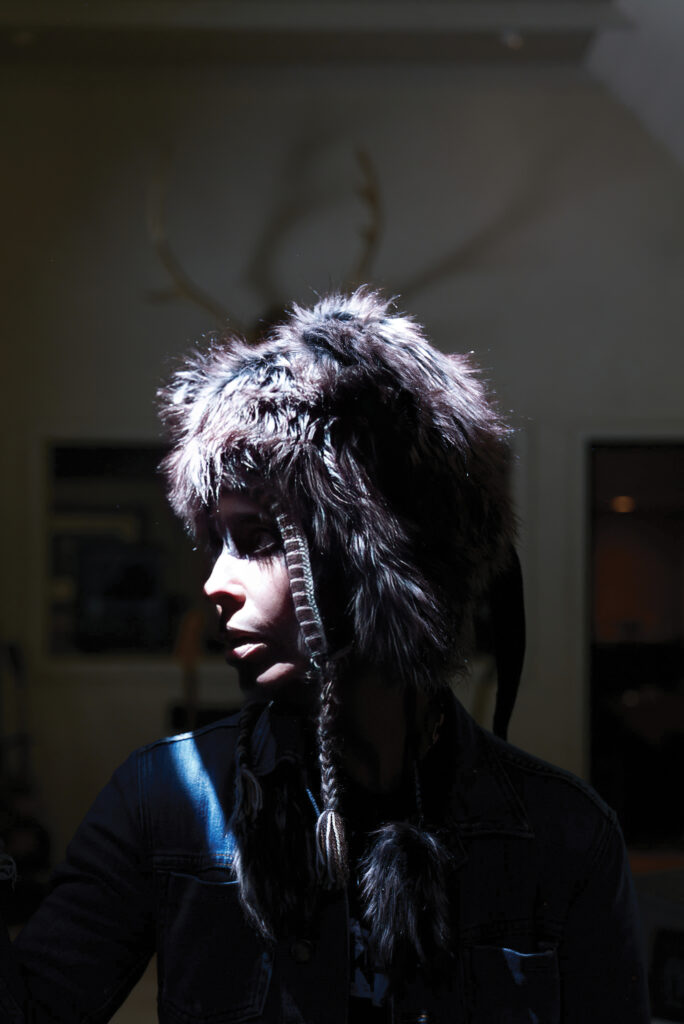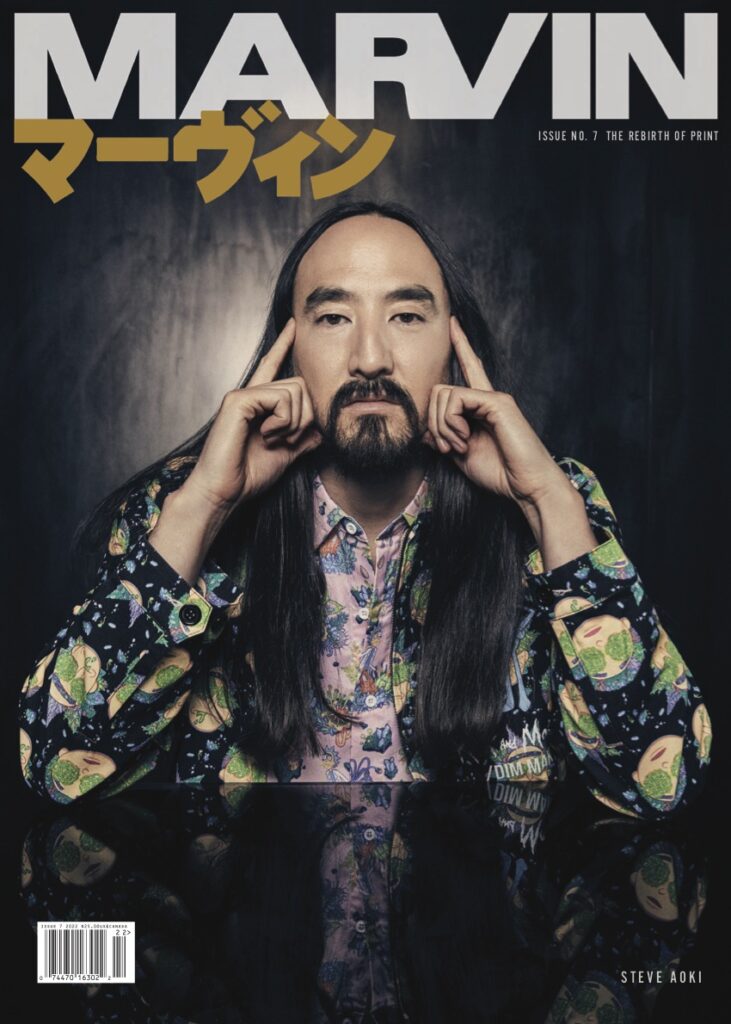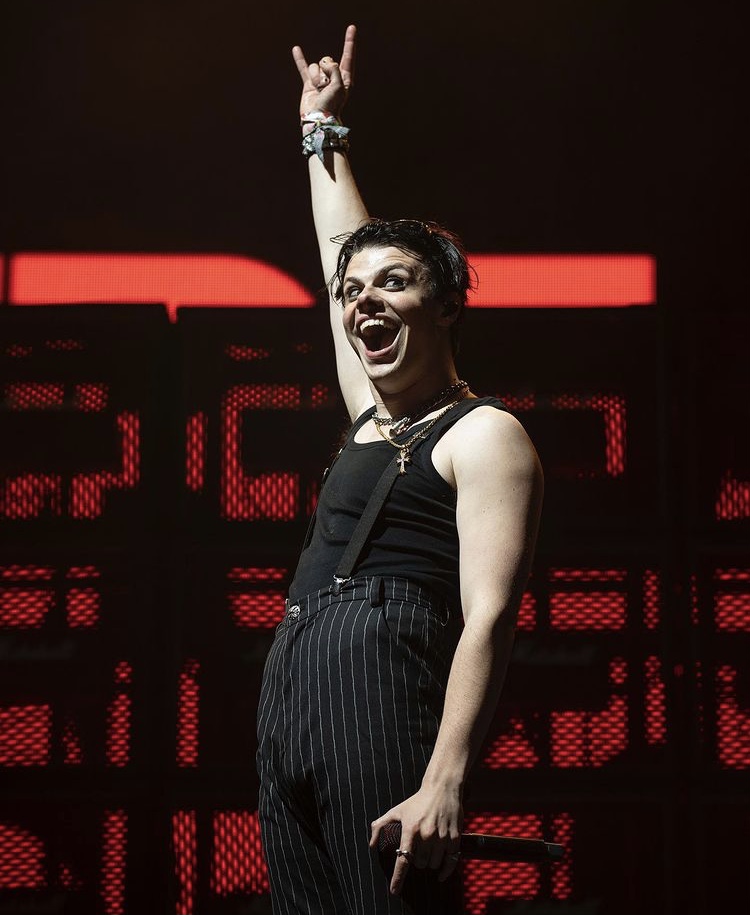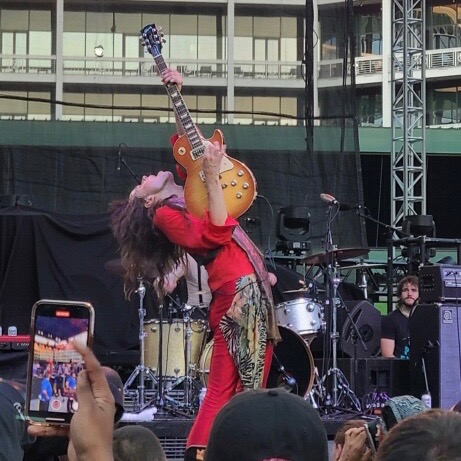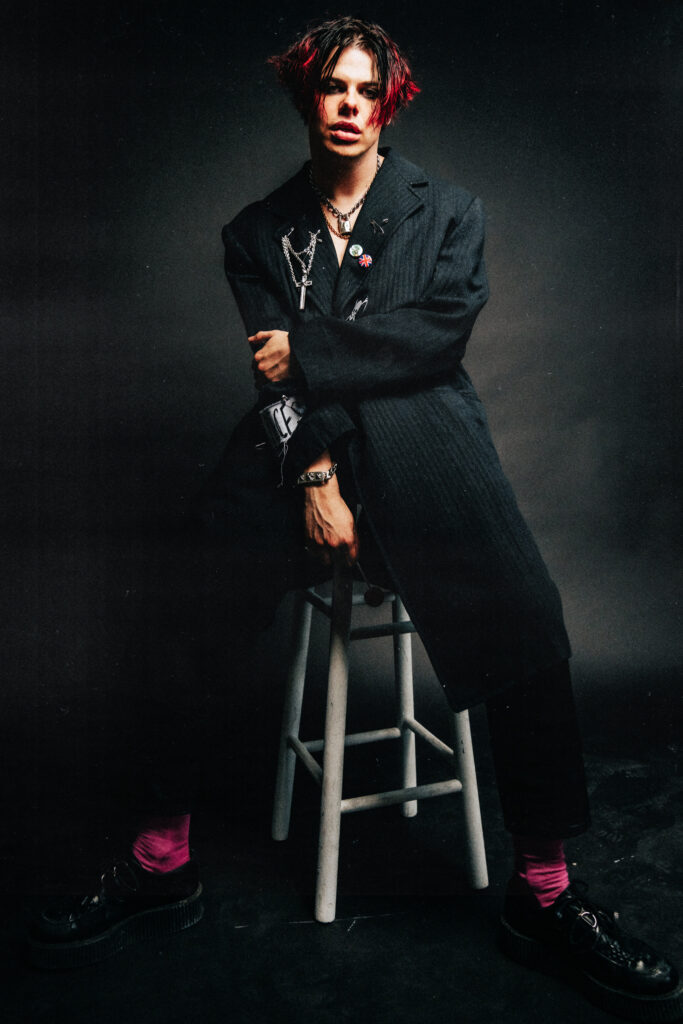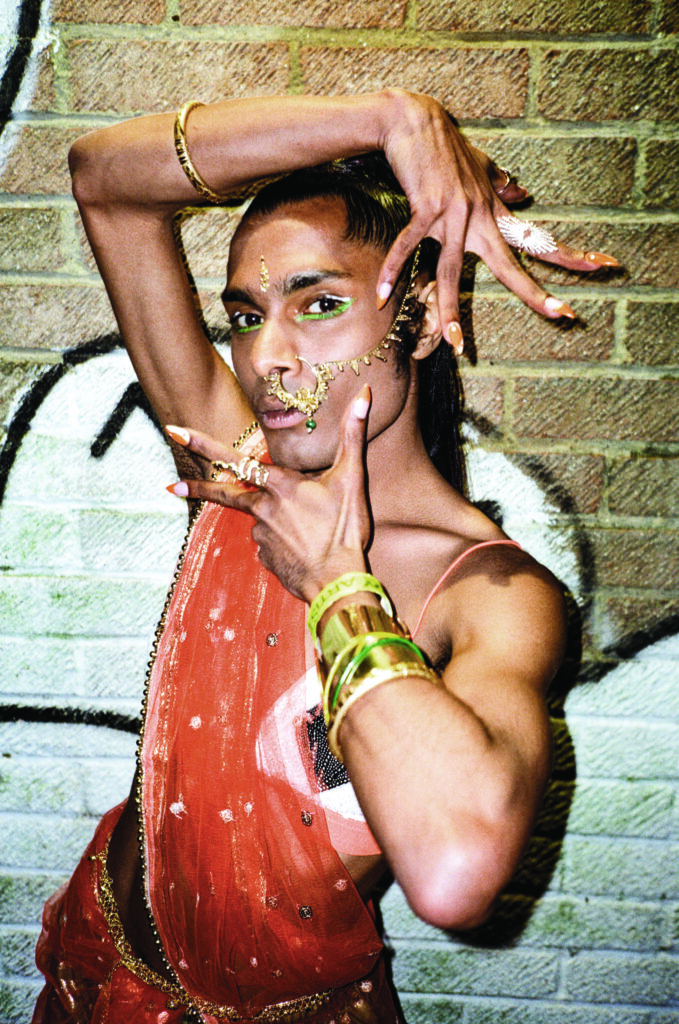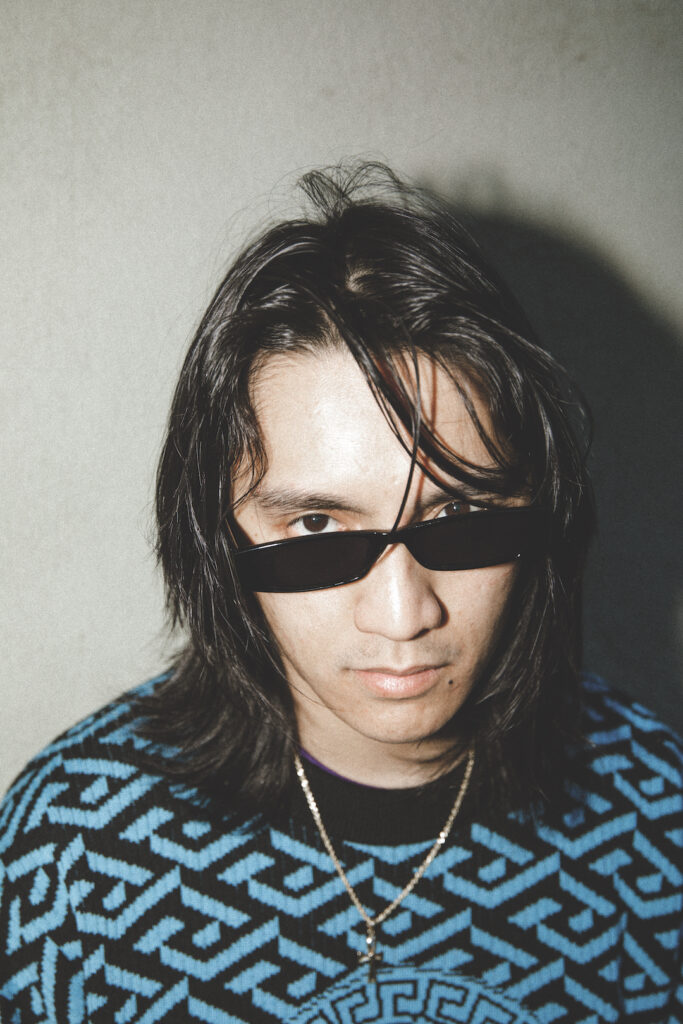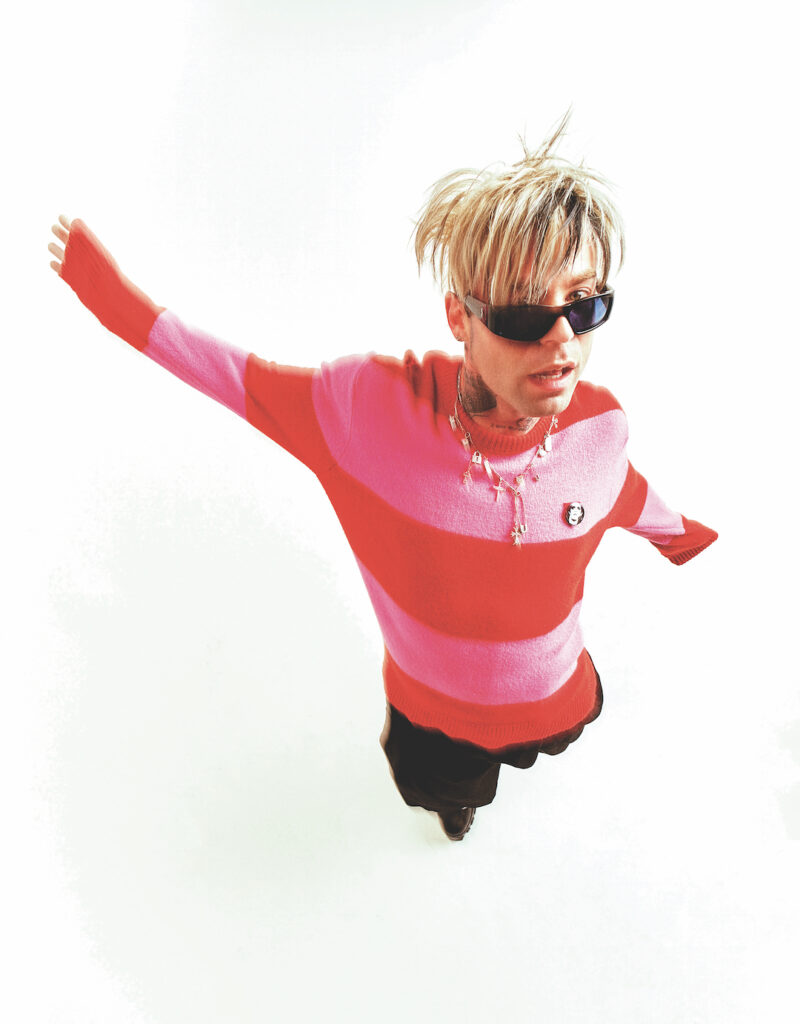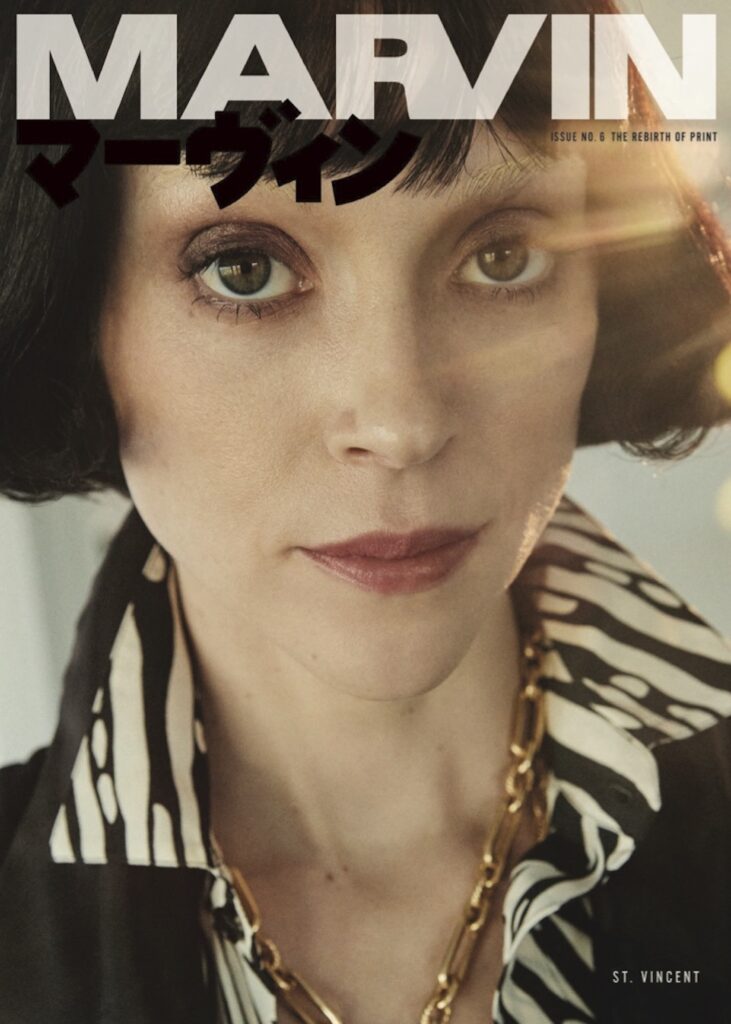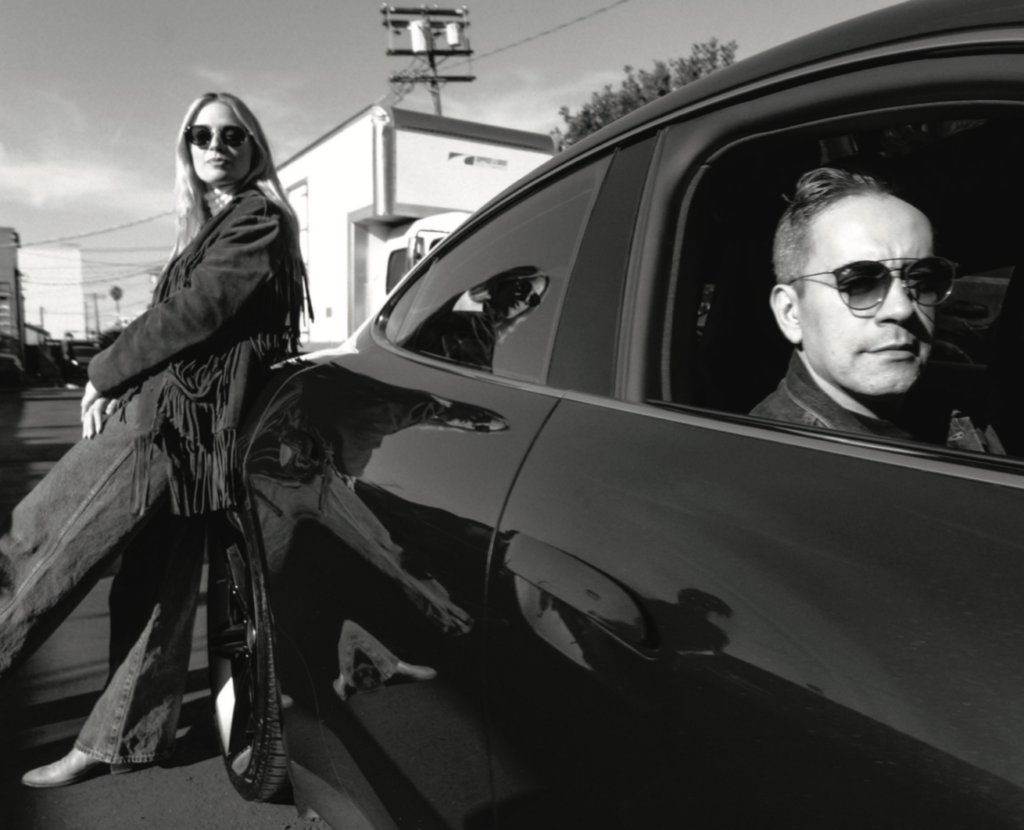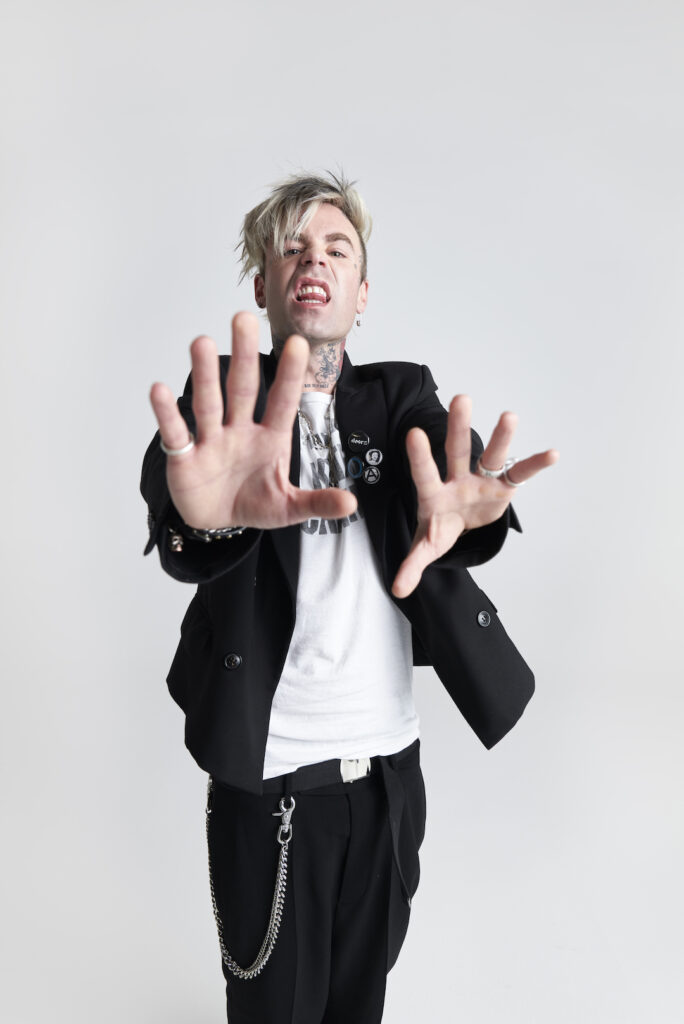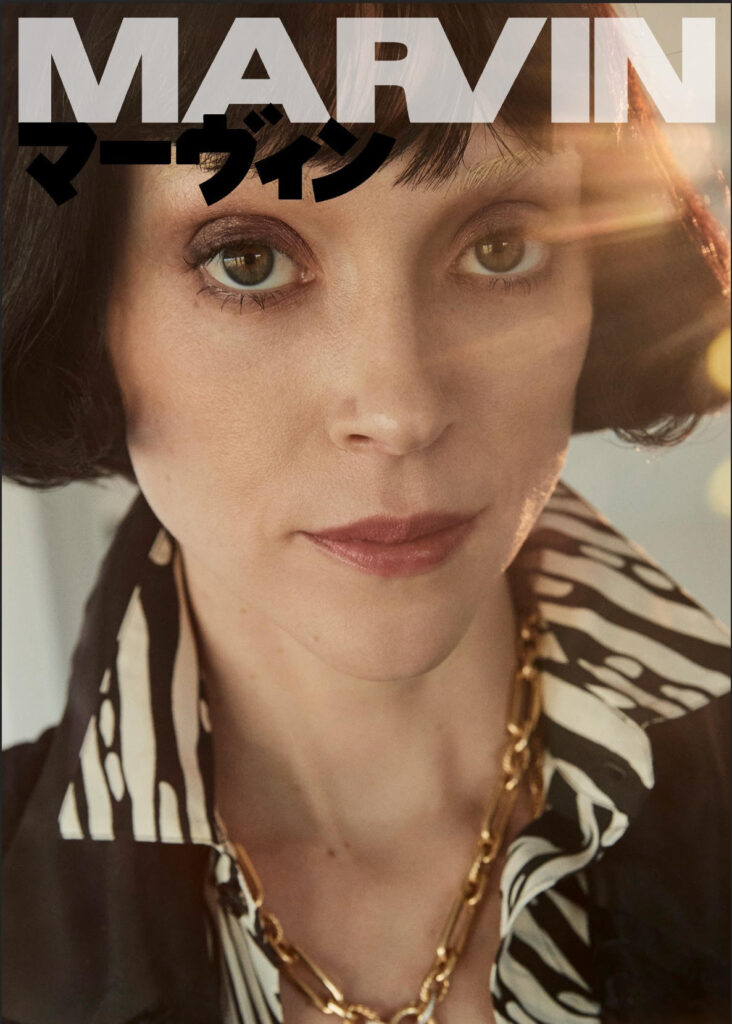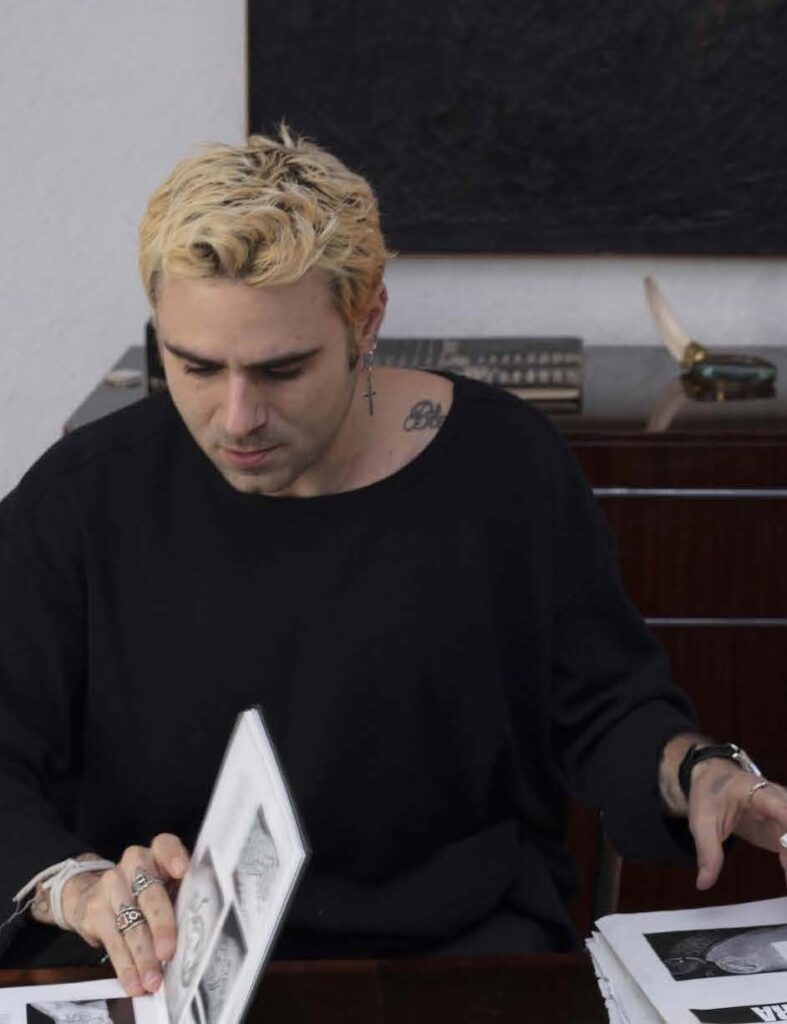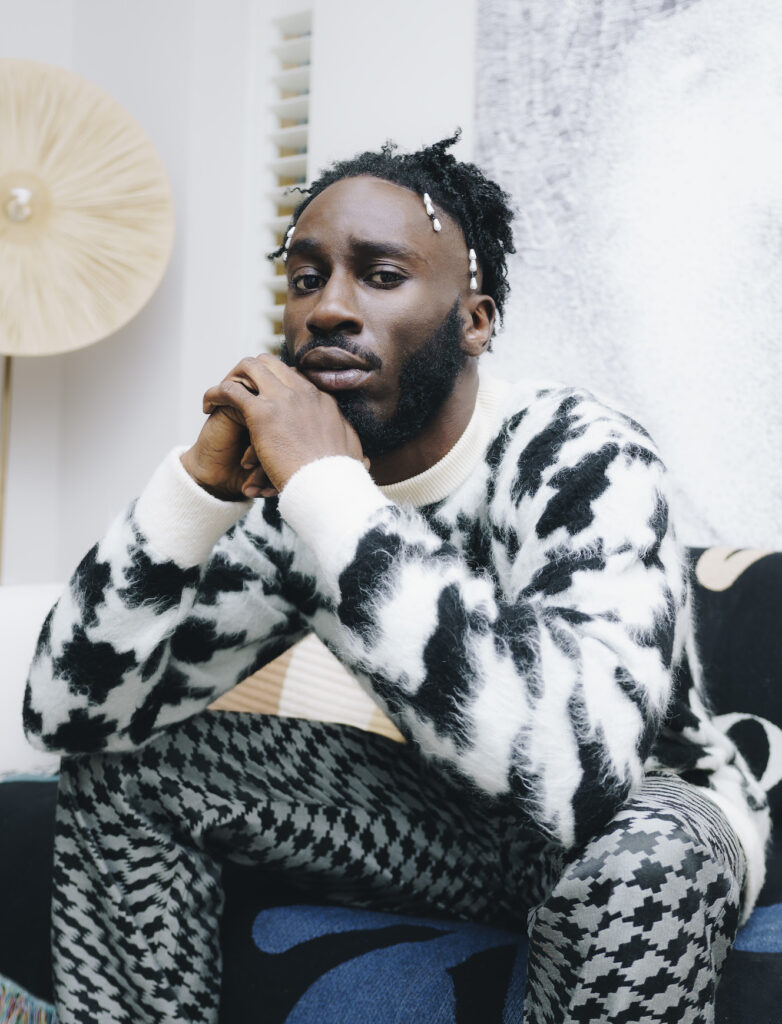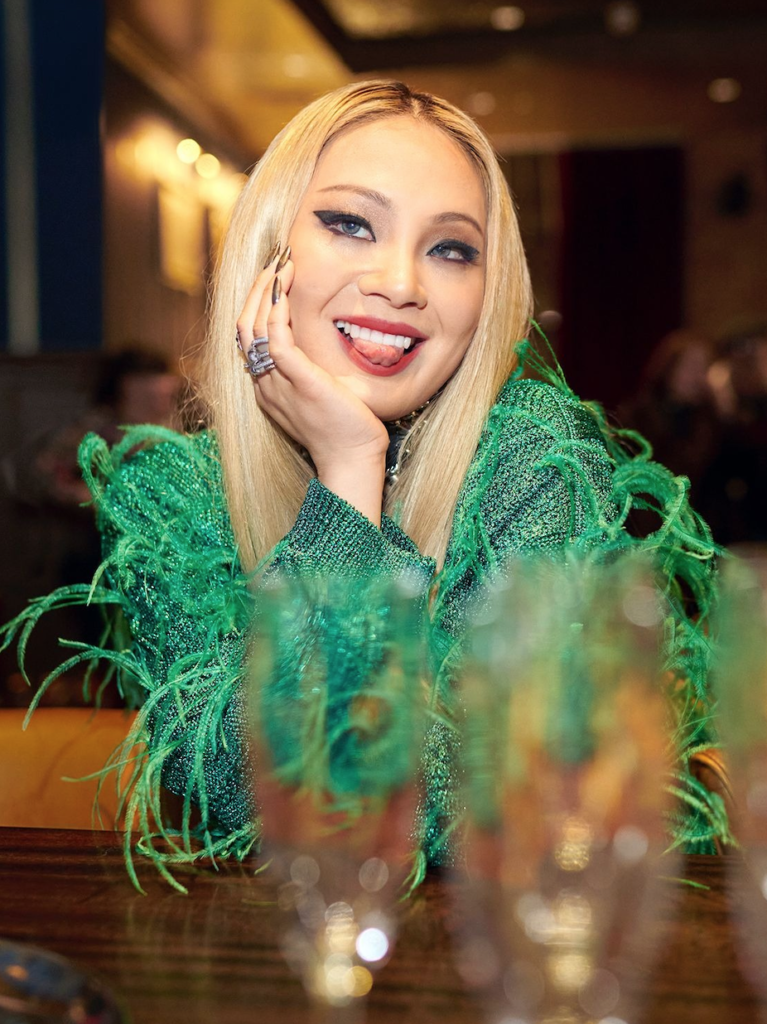Rapper Hotboii Reflects on His Past, Present and Future
PHOTOGRAPHY by MATTHEW SALACUSE
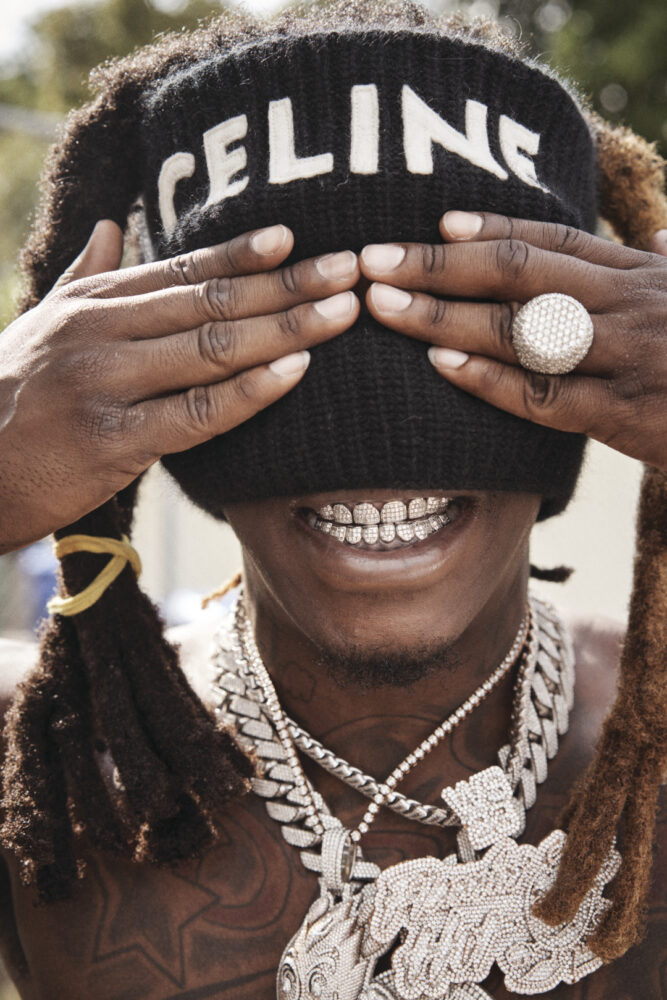
Featured on FCG Heem’s track “Headlock”, fellow Floridian Hotboii raps about being “out in the trenches” and his passion for rapping his way out of circumstance and become a household name on top of it. The concept of escape has been integral to growing up in Orlando, Florida. As a young man, it’s informed many of his life’s decisions. “I feel like I had a chosen responsibility,” he says in an animated southern drawl that shifts in and out of fast-paced summations. “I had to get out of everything that I was going through.”
The connection between poverty and rap is often exemplified by the personal stories of the rappers themselves as they canvass their own socio-economic realities in their work. From Dr. Dre’s 2006 track “Lil’ Ghetto Boy” to UK’s Drillminister running for London mayor “representing the working class”, the subject continues to form discussion. “I still have around 7 notebooks with me,” Hotboii explains about recording his blunt experiences as a child; his immediate siblings were raised in a brutal form of realism and poverty. “Sometimes, we’d have to strategically decide which meal we were going to have for the day as there was just no more.”
Feeling the burdens of his situation, Hotboii put distance between himself and his circumstances, bouncing between his friends’ homes, where he oftentimes would be guaranteed one more meal for the day as well as some much needed catharsis. “I wanted to specifically leave as many resources back home as possible and allow my mom to make ends meet for the wider household as a child,” he recounts over Zoom. “With my father not around, I had to fend for myself and I did that.” Hotboii is frank in his remarks, clearly still healing from these experiences through a dry form of humor at times.
At age 7, Hotboii began the first of his notebooks chronicling every thought, experience and motivation that came his way. To him, it was a way to remain focused, but also have fun, allowing his imagination to preoccupy his mind. “I would write every single day. Seeing Lil Wayne do it big, I got inspired. I needed that outlet and way to escape beyond going to my friends’ houses. You can’t do that every day,” he explains. “It was those off-days that made me pick up a pen and do this.”
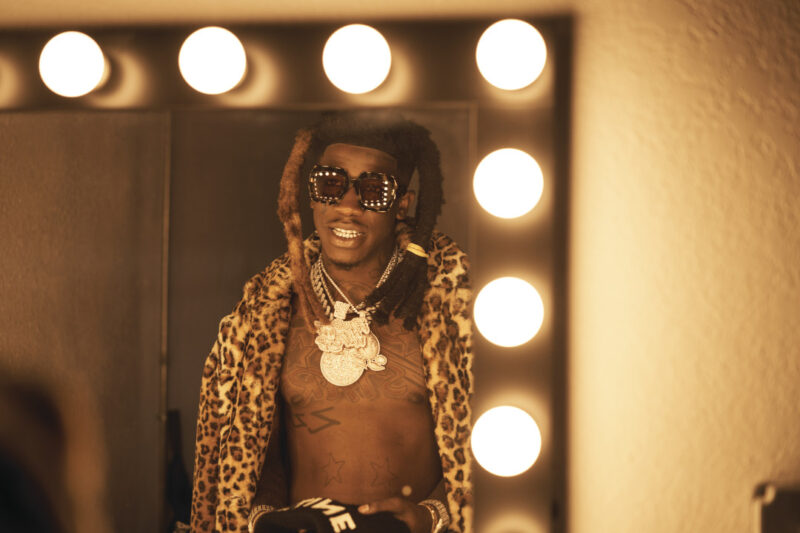
At 20, Hotboii has experienced stark dualities in his years than most. Across his inaugural Kut Da Fan On album release, he chronicles a vast majority of his story for the masses to see and interpret. The track “Gram House Blues” serves as an early reminder of Hotboii’s former extra-curricular activities. Fuck a 9 to 5, I ain’t wanna work no 8 hour shift // Rap, serve rock, hit a lick get it how you live, he raps over string-led, subdued soundscapes. It was half a lifetime ago that Hotboii was presented with the opportunity to make off-the-market income. “I’d be writing and see my aunt’s boyfriend and other people’s money,” he admits of his 10-year old self. “I would always reject the offers initially, instead focusing on music. But man, you tell me that you wouldn’t see the money and want to change your family’s life?”
I HAD TO FEND FOR MYSELF
His involvement with crime in West Orlando quickly manifested into his Hotboii rapper branding too. Chronicling the experiences that shaped his name, Hotboii recalls walking through his school halls draped in jewelry and wads of cash. “‘You’re too hot’ they’d always tell me,” he laughs. “And I was, I was really in school like that… carefree.” Initially referring to himself as Varri—a spin on his full name Javarri Latre Walker—it was only when Walker’s mother pulled him up on how “hot” (meaning potentially dangerous and susceptible to punishment) his activities were, that a change of rap name crossed his mind, never mind that it helped with the bills. “When [my mother] called me ‘hot’, it just worked, I used it instantly,” he laughs.
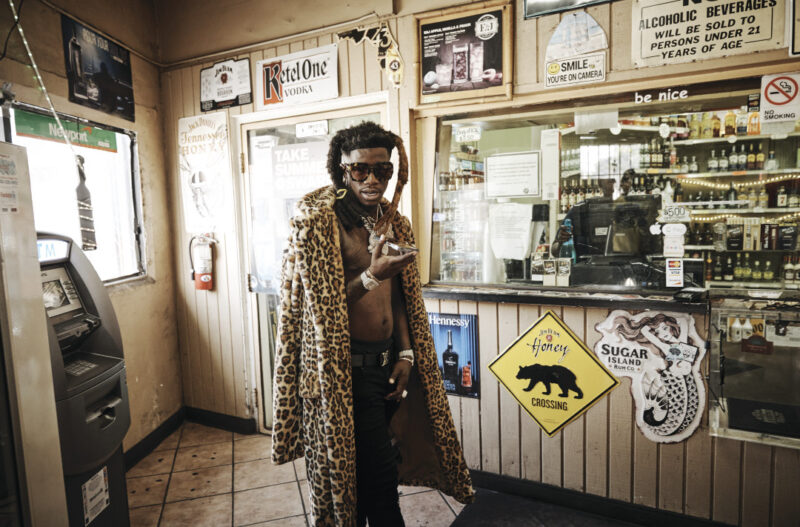
Such transparency has led to his success. Gaining traction amidst a global pandemic, his single “Don’t Need Time” surged in the spring and summer streams of 2020. The song discusses a major death in Hotboii’s life: his compadre Wolph Luma. The pair’s history was initially complex. “Man, Wolph and I met during high school. We used to fight, say that we were gonna kill each other, everything. Because of our extreme experiences with one another, we had to have become friends,” he admits. By July of that year, “Don’t Need Time” had become an underground success, garnering close to 10 million views on YouTube and scoring a Lil Baby assist for its remix. Harrowing and brutally simple in its dissemination of Hotboii’s thoughts, desires, loss and pain, the track also relates to the Gen-Z struggle of witnessing violence borne of governmental failures in community resources and adequate education. Gotta sleep tight ‘cause people ain’t waking up now/I know my nigga made it to heaven, I know it, he says in a cemetery in the song’s video, the emotional turmoil experienced throughout his and Wolph’s community on full display in solidarity.
I WOULD WRITE EVERY SINGLE DAY
Mentioning religious themes and his turbulent relationship with God is a constant tension across Hotboii’s discography as well. Sometimes glorifying his experiences in the underbelly of crime, he’s also constantly critical of who he is and the reckoning of his actions, even in the afterlife. “I know what I did and why I did it, so it’s hard. I do reflect on everything. Once you leave that activity you still have friends or family in it so you don’t ever really leave,” he explains. But he is wholeheartedly focused on music now more than ever, itching to extend beyond his double number one Billboard Heatseekers placements for his Kut Da Fan On follow ups Double O Baby and Life of a Hotboii, respectively. “I’m trying to really blow now,” he says. To him, his time in juvenile detention in 2018 for breaking and entering lead to better craftsmanship in his writing but also frustration at not being able to utilize pre-pandemic time to make physical appearances. “I saw people like Rod Wave and LPB Poody really do this and take things so far. I wanted to put my head down and get to it straight away,” he says of his time in detention solemnly. “I’m not jealous, because they’ve been my homies since before music, it just excites me.”
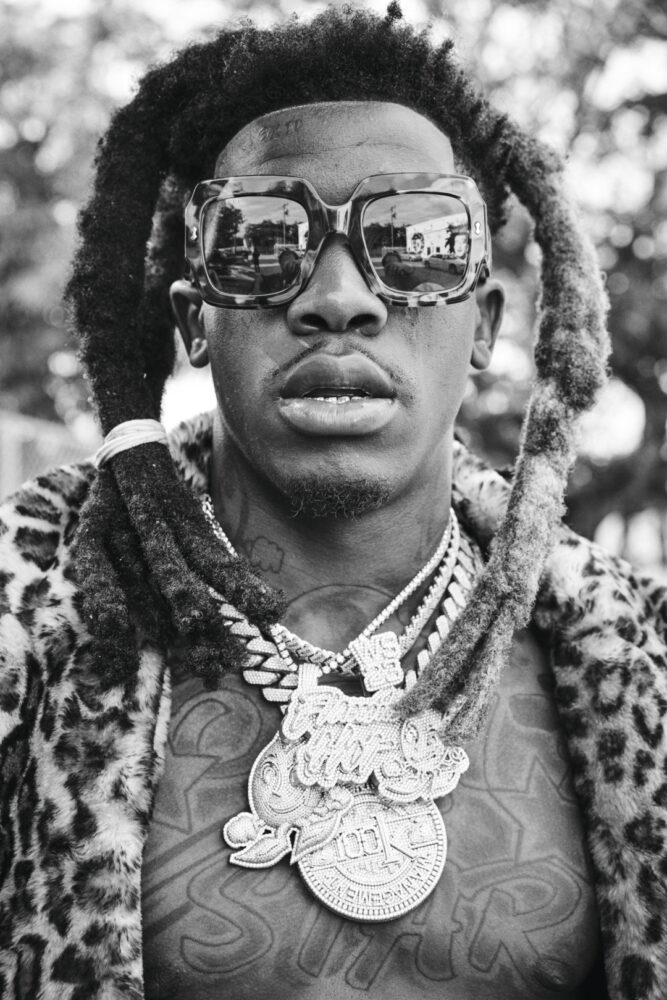
On Double O Baby, Hotboii leans into his romantic endeavors, clarifying on the track “I Don’t Want” that he’s closed off to love and girlfriends. “I don’t want to love no more,” he intones. It’s a defensiveness that he clarifies openly on our chat. “So many girls can make you so slimy,” he says. Having had a few romantic encounters over the years, he specifies that some of the trials and tribulations have involved his partner cheating with his best friends. When asked if he blames his friends also, he acknowledges the lack of respect but on a loyalty front, blames his paramour. “It’s just my perspective, if she cheats, she’s shown herself to you.” This sentiment permeates across all of his albums to date, as well as upcoming releases. On “Tell Me Bout It,” set to be released this year, he states that he might put his heart on sale. To him the concept of fake girlfriends is something he endorses as long as they all know that the romance is temporary and non-committal. “I’m just trying to find the girl that actually wants to lead [a polyamorous] lifestyle.” Until then, however, he wants to keep things temporary.
Despite this stoic approach in life, he leans further into vulnerability on his upcoming album which serves as a sequel to Kut Da Fan On, discussing heartbreak beyond the surface level remarks that he’s addressed on the subject to date. Audiences know that he’s been scorned but he’s not afraid or embarrassed of experiencing turbulent relationships now either. Lil Durk’s recent “Blocklist” single serves as a primary inspiration behind his shift in mentality. “I experienced these things, why should I be ashamed to talk about it,” he asserts.
Before his trajectory goes stratospheric as a rapper, however, Hotboii is determined to hold onto the real people and situations outside of the booth. His 21st birthday in particular will spotlight the milestones of his life. “I’m just excited because Kodak Black and one of our other friends have birthdays around the same time. Kodak’s first so we’re gonna celebrate his two days before.” Hotboii has also found fresh motivation from the birth of his son two years ago, born 12 days before the rapper’s own birthday. “You’re so focused on you, and what your goals are but after my son’s birth, everything changed.” Shedding his former self, he’s ready to step into his next purpose. “I’m thinking twice now. All of my decisions, I’m doing this for him as much as for me right now.”
@itshotboii438
